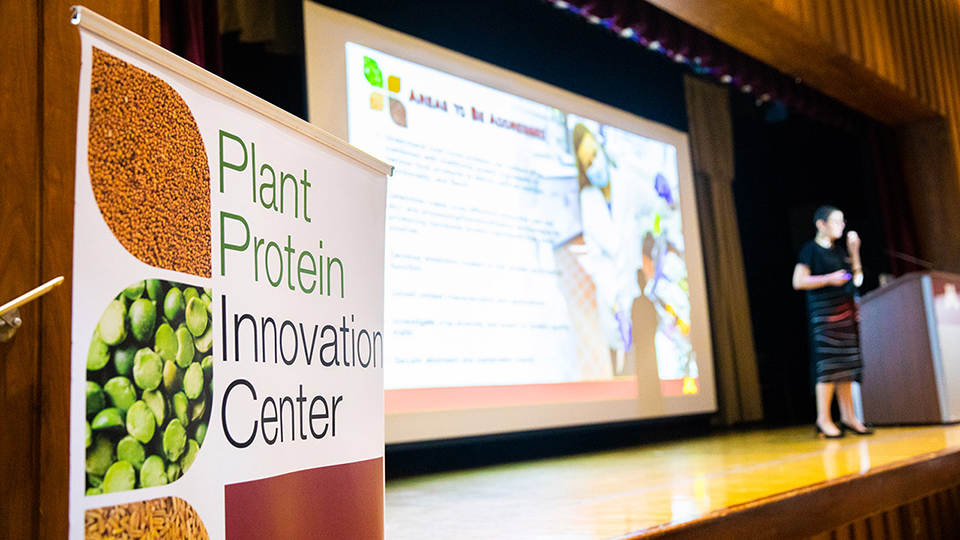
Located on the Saint Paul campus under the umbrella of the College of Food, Agricultural and Natural Resource Sciences, the Plant Protein Innovation Center (PPIC – pronounced like pea-pick) was founded nearly five years ago based on the premise that academia and industry can work together to accelerate meaningful, significant research with real-world impact.
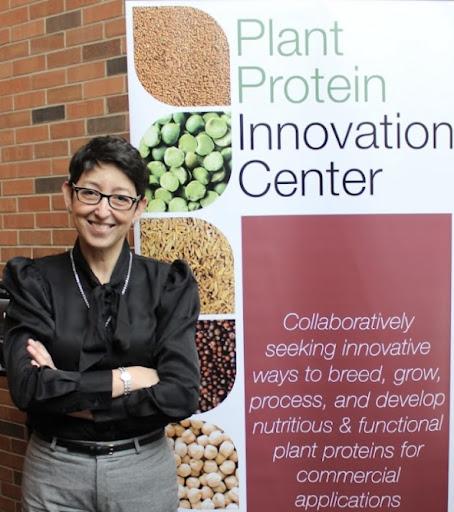
A Seed is Planted
PPIC Founder and Director Professor B. Pam Ismail never imagined she’d be managing a research center. A food scientist with an interest in protein chemistry, Ismail confessed that she spent a lot of time conducting research in a specific academic silo. Her varied areas of interest emphasize improving the functionality and bioactivity of proteins from different sources and, due to growing interest in plant proteins for reasons including health, animal welfare, and climate change, among others, making plant proteins better suited for human consumption.
During her quest to earn tenure, she asked a colleague, who then served as head of research and development at the global food corporation Cargill, to be an external reviewer. In his letter, he said her research was interesting, but he thought she needed to be working with industry.
At the first opportunity, Ismail took a sabbatical leave and worked at Cargill’s R&D department leading the company’s efforts in initiating a plant protein research focus to accelerate entry into the plant protein market to meet the growing consumer demand for plant-based foods.
“It was a light bulb moment to see how my research could be translated for industry,” said Ismail. “Soon people started telling me I should start a research center. There was a lot of encouragement from the department, CFANS, and industry, and I knew if we didn’t establish a plant protein research center at the University, someone else somewhere else would.”
A year and a half later, Dr. Ismail launched PPIC in November of 2018.
The Uniqueness of PPIC
To launch PPIC, Ismail studied other Centers of Excellence, both at the University and beyond, and identified what other centers did well and how PPIC could do better. PPIC’s model emphasizes a strong connection with industry, offering companies three levels of membership based on annual revenue and numerous benefits that serve the interests of both members and the Center.
In the first year, PPIC grew rapidly, signing on 11 founding members. Now, as the center approaches its five-year anniversary, it works with 37 global members, who help guide the Center’s research, and typically generates $1–1.5 million a year, depending on membership expansion and external grants received.
“Our model is unique in that we have a very involved industry committee,” said Ismail, explaining that the technical committee, composed of industry representatives and other stakeholders, sets the Center’s research priorities.
The only Center to focus on plant protein in the nation, PPIC has become well-known, drawing people from all over the world. The Center currently manages collaborations with partners in Germany, Netherlands, France, Denmark, and Finland and is trying to build connections in India and Singapore.
“We’re working really hard to make sure it’s not just research within Minnesota but that our reach is international and we do work that brings people together on a global scale,” said Ismail.
MBOLD, a coalition of Minnesota’s leading food and agriculture companies, can attest to the value of PPIC’s work. “It is important to consumers and to the health of our planet that plant proteins move from a niche into the mainstream,” says MBOLD managing director JoAnne Berkenkamp. “That will require the development of plant-based foods that meet consumer expectations for taste, texture, price, clean label, and nutrition. PPIC’s research is a key piece of that vision a reality.”
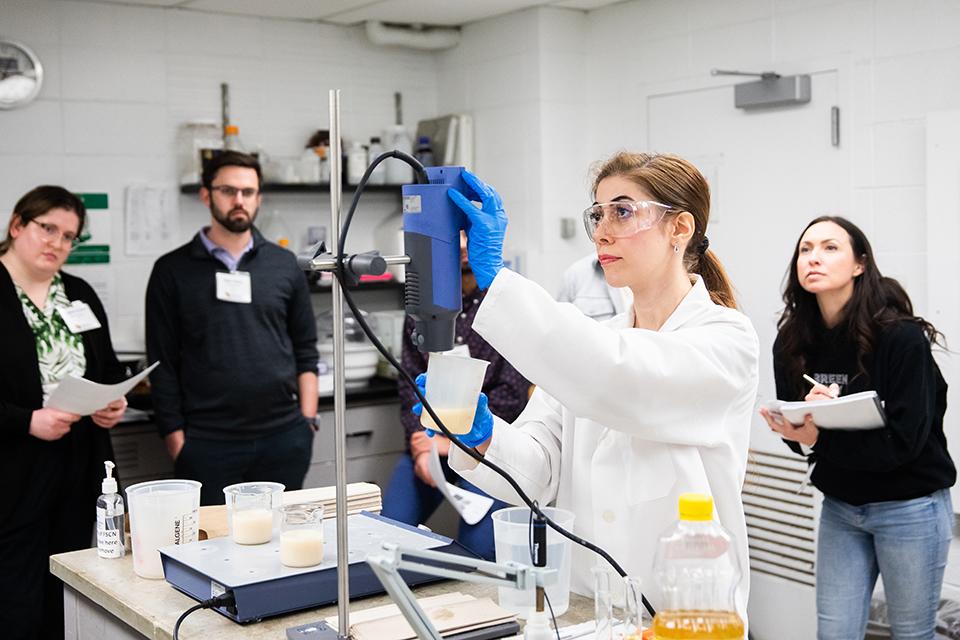
Industry-Driven, High-Risk Research
A lot of PPIC research is guided by members, who often come to the Center with a problem or request. Microsoft, a newer member, joined PPIC with a research project in hand and provided funding for a postdoc to gather data points to train machine learning models related to plant protein structure and function.
One industry-driven research project asked PPIC to develop a way to make pea protein as soluble as whey protein. PPIC researchers then developed a patent-pending process that enhanced solubility by combining pea protein and the starchy byproduct of pea protein production. After proving the process at a small scale, they secured additional funding from USDA ARS to test it at a pilot scale.
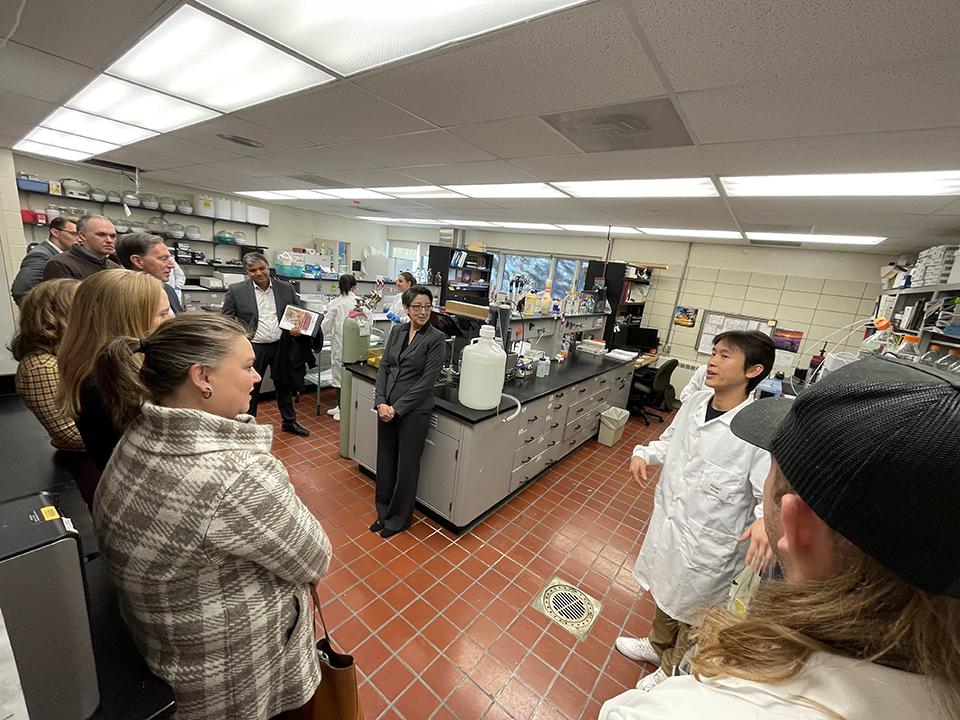
“We can take a crazy, high-risk idea that no one has thought of and test it using PPIC dollars as seed funding,” said Ismail. “If it’s successful, we level it up to pilot scale by securing additional funding.”
PPIC has proven the efficacy of using cold-plasma to enhance plant protein structure to better serve as a meat alternative and is currently looking at funding opportunities to scale the process. They also initiated a hemp breeding program that targets enhancement of hemp protein in food systems. PPIC researchers used the results of their small study to secure funding from the Minnesota Department of Agriculture to screen more varieties with the intention of identifying varieties that can be bred or cross-bred to enhance nutrition and functionality.
As of October, PPIC has completed 15 research projects for members so far in 2023 alone with 11 in progress and 9 in the pipeline.
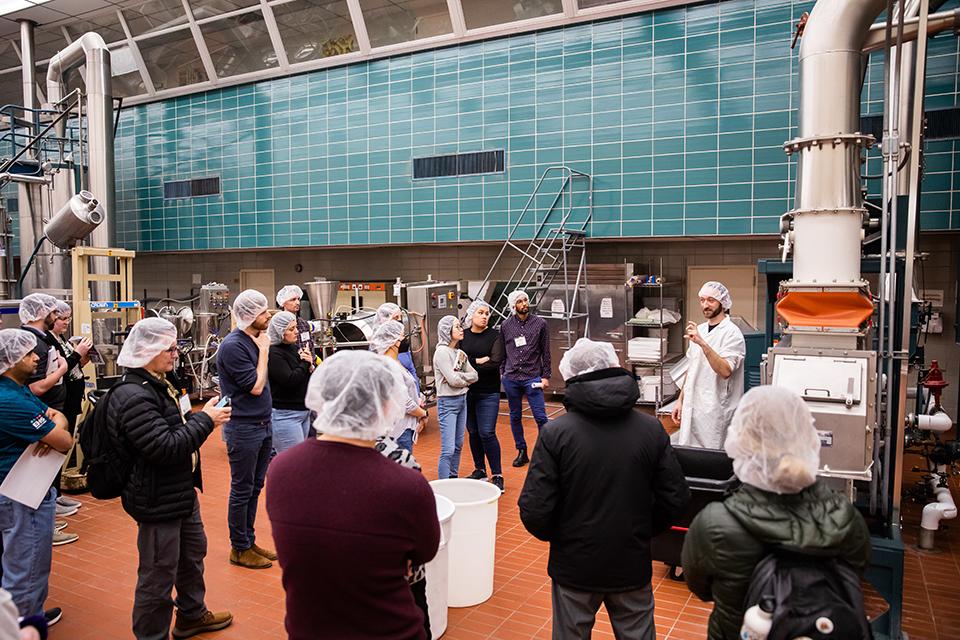
Not Just Research, PPIC Strives to Be a Knowledge Hub
More than just a research center, PPIC serves as a knowledge hub for plant proteins. The Center regularly hosts network and outreach events including an Annual Research Spotlight Meeting, an annual short course, and workshops. In November, PPIC will host a Process Scale Up workshop. All of their events have sold out.
As part of her long-term vision, Ismail wants PPIC to be the place to go to solve plant protein problems and in the meantime she is focusing on conducting enough basic research to help address many fundamental gaps and provide a solid foundation for industry partners to use to advance their innovation and goals.